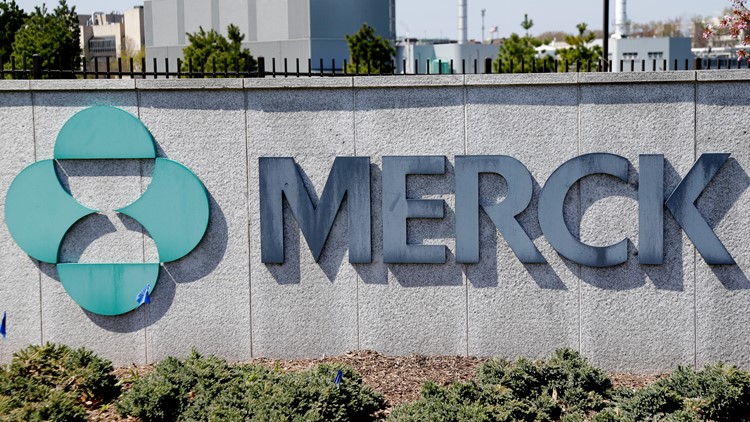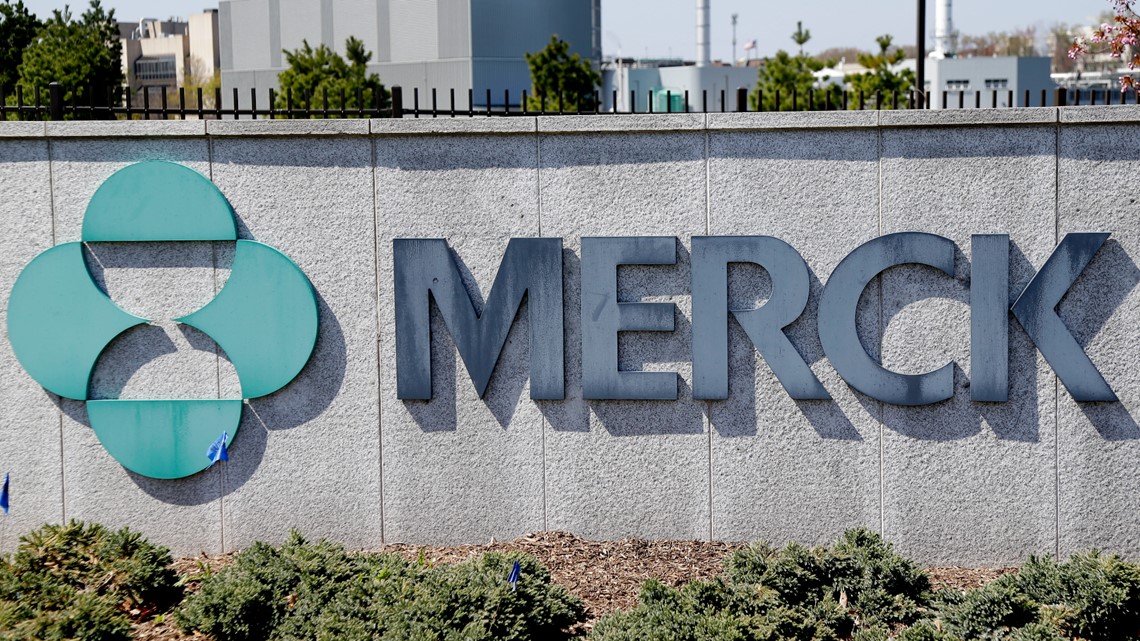
The company expects as much as $1 billion in sales from its COVID treatment this year if regulators authorize it in December.
Merck fell out of the race to develop COVID-19 vaccines earlier this year but could vault to head of the pack for treatments in 2022.
The drugmaker’s potential antiviral, molnupiravir, may generate $5 billion to $7 billion in sales through next year, company executives told analysts Thursday morning. That could include as much as $1 billion this year if regulators authorize it in December.
The company has asked for authorization in both the U.S. and Europe for what would be the first pill to treat COVID-19. All other treatments backed by the U.S. Food and Drug Administration require an IV or injection.
“The need for additional treatment options remains key in combating the COVID-19
pandemic,” Dr. Dean Li, president of Merck research laboratories, told analysts during a Thursday call to discuss third-quarter results.
The FDA has said a panel of outside experts will meet late next month to consider the treatment for use in adults with mild to moderate COVID-19 who are at risk for severe disease or hospitalization.
Merck reported earlier this month that, in testing, the pill cut hospitalizations and deaths by half among patients with early symptoms of COVID-19.
Li said the treatment, which Merck developed with Ridgeback Biotherapeutics, was consistently effective against several virus variants, including the now dominant delta version.
Merck also is studying molnupiravir to see whether it can be used to prevent the spread of COVID-19 in households after someone is exposed to the virus. The company expects results from that research next spring.
In the third quarter, Merck’s blockbuster cancer treatment Keytruda and the vaccine Gardasil pushed the drugmaker well past Wall Street’s third-quarter expectations, even as COVID-19 sapped demand for another vaccine.
Keytruda revenue jump 22% to $4.5 billion, while sales of Gardasil vaccines against the cancer-causing human papilloma virus soared 68%.
But sales of Merck’s pneumonia vaccine, Pneumovax 23, tumbled 26% mainly because people in the United States prioritized preventive shots guarding against COVID-19.
Overall, Merck posted adjusted earnings of $1.75 per share, as net income jumped 55% to $4.57 billion in the quarter.
Analysts expected, on average, earnings of $1.55 per share on $12.32 billion in revenue, according to FactSet.
Merck also said Thursday that it raised and tightened its 2021 forecast. It now expects full-year adjusted earnings of between $5.65 and $5.70 per share on $47.4 billion to $47.9 billion in revenue. The potential COVID-19 treatment was not included in the forecast.
Analysts expect earnings of $5.64 per share on about $47.68 billion in revenue.
Merck said global health systems have largely adapted to the ongoing pandemic, which was still hurting sales earlier this year as people postponed visits to both doctors and veterinarians.
Merck makes drugs for both people and animals. The company expects a 2021 revenue hit of less than 3% from COVID-19.
Shares of Merck & Co. Inc., based in Kenilworth, New Jersey, jumped nearly 5% to $85.40 Thursday, as broader indexes climbed slightly.













































